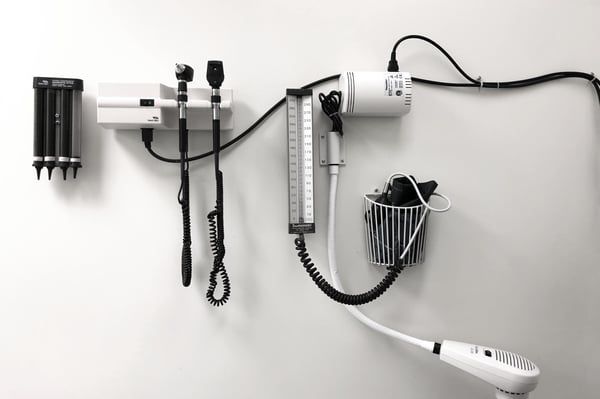College Students: Your Insurance Crash Course
You may still be on your parents' every insurance or just curious on how this insurance stuff works. In any case, it’s a good idea to familiarize yourself with some basics on different types of insurance because it can really pay off in the long run. Insurance can’t exactly prevent things from going wrong, but it can really protect you from unexpected expenses. Life happens, and it's okay because insurance can be a good buffer for those moments!
First up, a few common vocab terms you'll need to know:
Premium: Amount of money you will pay the insurance company for the policy you have. Essentially, the company guarantees payment to cover damage, as outlined in your contract. For that, you pay them a smaller amount of money, typically in a regular or monthly payment.
Deductible: The amount of money you pay before the insurance company starts to pay. For example, with a $1000 deductible you would pay the first $1000, after this your insurance company would foot the rest of the bill up to a certain amount as described in your policy, let's say 70%. You may pay a coinsurance to help pay that “rest of the bill”, the remaining 30%.
Claim: A formal request to the insurance company to cover the cost of a situation. In this you will need to show how the costs fall under the policy you have.
Copay: (Typically for health insurance) A fixed amount you would pay out of pocket for certain services. For example, if you go to the doctor, aside from the monthly deductible you pay to have an insurance plan, you must pay $25 for a visit and $10 for certain prescriptions.
|
Auto Insurance
Auto insurance is a contract between you and the company that protects you against accidents or theft. Your policy may consist of the following: Liability: Pays for damage to other vehicles and property you cause in an accident. Collision: Pays for damage for your own car in an accident, regardless of fault. Comprehensive: Pays for damage to your car’s value from other things like fire, floods, hail, animal collision and sometimes theft. Other/Medical: Pays to supplement your health coverage if the other driver doesn’t have enough insurance. Some great college-friendly auto insurance companies to look at: |
Health Insurance
Health insurance is a really good idea to help pay for both routine health expenses as well as emergencies. In most states, you may be on your parents' insurance until 26 years. However, your insurance network may be limited to your where your parents live. Network: Group of medical care providers that have a contract to provide services to members of certain health care insurance companies. Check out your college’s medical insurance plans to see if that is better for you and your family financially. Given that you will likely be using the on-campus medical facilities, it may make doctor’s visits at school more seamless. If you are living on your own and are not filed as dependent for taxes, you may qualify for Medicaid as well. Companies to check out: Care First (Blue Cross Blue Shield)
|
|
Renter's Insurance
Particularly for off-campus housing you should get renters insurance to protect yourself from theft and property damage. Renters insurance will typically cover two areas: Personal Property Coverage: Will cover items like your clothes, laptops, books and other personal belongings in case of theft or other damage. Liability Coverage: Typically covers costs of damage you may have caused during your time there. There may not be many “dorm” insurance coverage policies but getting renters insurance or personal property insurance can save you money! College friendly renters insurance:
|
Traveler's Insurance
Especially now, with plans rapidly changing you should get travelers insurance. Here’s what’s typically covered: Trip Cancellation: Depending on what is outlined, you can recover your out of pocket costs if you couldn’t make your trip. Trip Interruption: In case you couldn't complete your trip, this can include weather complications. Medical Evacuation: If you were to get extremely sick on a trip or semester abroad, some companies cover your costs to get back home. Baggage Loss: Should your baggage never make it or not make it on time, some insurance can recover the costs. Some airlines themselves provide travelers insurance for the trip you book with them Travelers insurance to look into: |
Knowing the basics of insurance can really help get you out of some sticky situations! To learn more about budgeting for things like insurance, check out the Kora app.






